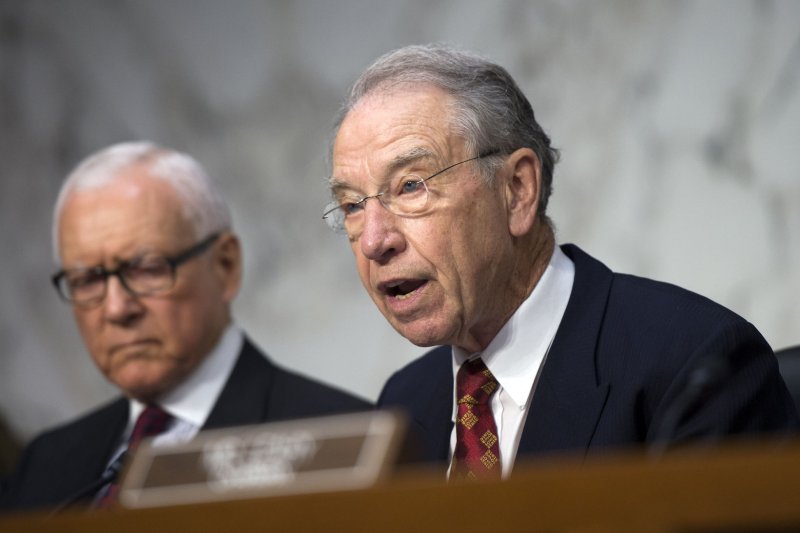A bipartisan group of senators announced a criminal justice reform bill on Thursday that would reduce some mandatory minimum sentences, including for nonviolent drug offenders. Sen. Chuck Grassley, R-Ia., has worked for months in leading negotiations to create the bill. File Photo by Kevin Dietsch/UPI |
License Photo
WASHINGTON, Oct. 1 (UPI) -- A bipartisan group of senators announced a criminal justice reform bill on Thursday that would reduce some mandatory minimum sentences, including for nonviolent drug offenders.
The bill includes parts of a prison reform bill that would improve programs aimed at reducing relapses for criminal behavior and would offer early release for inmates who complete those programs, The Hill reported.
"For the first time we're cutting back some of the most severe mandatory minimums," Iowa Sen. Chuck Grassley, the chairman of the Judiciary Committee, told reporters.
However, the bill would increase mandatory minimum sentences in areas such as interstate domestic violence.
The announcement follows Secretary of Education Arne Duncan's call on Wednesday to dramatically reduce incarceration for nonviolent crimes, The Washington Post reported.
He also called for an estimated $15 billion in savings to be used to substantially raise the salaries of teachers in high-poverty schools, arguing the move would persuade strong teachers to work with disadvantaged children.
"With a move like this, we'd not just make a bet on education over incarceration, we'd signal the beginning of a long-range effort to pay our nation's teachers what they are worth," Duncan told reporters. "That sort of investment wouldn't just make teachers and struggling communities feel more valued. It would have ripple effects on our economy and on our civic life."















